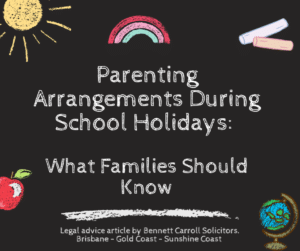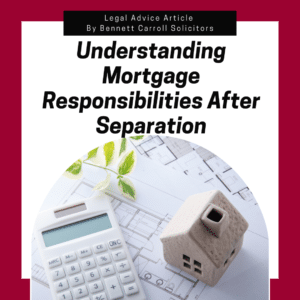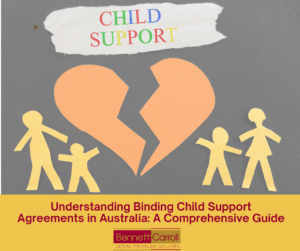Navigating school holidays can be a unique challenge for separated or divorced parents, particularly in Brisbane, Gold Coast, and the Sunshine Coast. While the academic year follows a predictable rhythm, school holidays often bring added considerations for parenting arrangements. Here’s what families in Brisbane, Gold Coast, and Sunshine Coast should know about planning and managing their parenting arrangements during school holidays to ensure a smooth and enjoyable experience for the children.
Understanding Parenting Orders and School Holiday Provisions
Parenting arrangements are typically outlined in either a Parenting Plan or Parenting Order. These documents establish how responsibilities and time with the children are divided. Ideally, arrangements for school holidays are included in these agreements, but if they’re not, parents may need to reach a mutual understanding ahead of time to avoid potential disputes.
Parenting Order*—legally enforceable orders issued by the court—often include specific provisions for school holidays, ensuring each parent has fair and balanced time with the children. In cases where a Parenting Order does not cover school holidays, a variation may be required to outline additional arrangements.
Parenting Plans, on the other hand, are informal agreements reached between parents. While not legally binding, they can be adapted more flexibly than Parenting Orders, allowing parents to adjust their plans to suit the children’s best interests.
Key Considerations for School Holiday Parenting Arrangements
When preparing school holiday arrangements, several key factors should be considered to ensure an optimal plan that supports the children’s well-being and allows both parents to enjoy quality time with them:
1. Planning and Consistency
– Consistency is key for children, especially when it comes to routines and schedules. School holidays can be a good opportunity for longer visits or travel, but planning well in advance is essential to minimise stress for both parents and children.
2. Fair Division of Time
– In general, it’s recommended that parents divide school holiday time equitably, ensuring the children have the chance to spend meaningful time with each parent. For example, one parent may have the children for the first half of the holidays, while the other has them for the second half. Alternatively, parents may alternate holidays year-to-year.
3. Consideration of Extended Family and Social Activities
– School holidays are also a time when children may have family gatherings or social commitments with friends. Parents should remain open to accommodating these activities, fostering the child’s sense of connection and belonging within their extended family and social circle.
4. Flexibility for Unique Opportunities
– School holidays offer a chance for travel, events, or experiences that might not be possible during term time. A level of flexibility, where possible, can ensure that children don’t miss out on special opportunities. For example, one parent might request extra days to allow for a family vacation, which can be balanced by offering the other parent extra time at a different holiday period.
Handling Disputes Over Holiday Arrangements
Sometimes, disputes may arise over how to divide school holidays. In cases of disagreement, mediation can provide a structured environment for parents to resolve issues with the assistance of a neutral party. If mediation fails, seeking a court order for school holiday arrangements might be necessary.
The family courts are focused on ensuring the best interests of the children in all decisions regarding parenting orders. It’s important to keep in mind that the courts are likely to encourage fair and reasonable solutions, emphasising each parent’s ability to spend quality time with the children.
Tips for Managing Transitions Between Parents
Switching homes during the holidays can sometimes be disruptive for children, particularly younger ones. Here are some tips to help manage these transitions smoothly:
– Maintain Open Communication: Keeping an open line of communication between parents can help reduce anxiety for the children and ensure smooth handovers.
– Stick to Agreed Times and Locations: Agree on a clear time and place for transitions, whether that’s a public place, each parent’s home, or another agreed location.
– Provide Support and Reassurance: Transitions may cause some emotional reactions, especially at the start. Offer reassurance to the children and reinforce the positive aspects of spending time with both parents.
Preparing for the Next School Holiday Period
If current arrangements aren’t working well, the school holiday period may be a good time to revisit and adjust parenting arrangements. It’s possible to update a Parenting Plan through mutual agreement, or to apply for changes to a Parenting Order if circumstances have significantly changed. Consulting a family lawyer can be invaluable to ensure any adjustments are in line with family law standards and are legally sound.
Conclusion
Managing parenting arrangements during school holidays in Brisbane, the Gold Coast, and the Sunshine Coast is crucial for creating a positive and stress-free experience for both parents and children. Planning ahead, ensuring fair time division, and staying flexible are all key elements in making the most of the holidays.
If you’re facing challenges with your parenting arrangements or need to make changes to your Parenting Order or Plan, the experienced family lawyers at Bennett Carroll Solicitors are here to help. We provide expert legal services in Brisbane, Gold Coast, and Sunshine Coast. Contact us today to discuss your situation, and let us guide you in achieving the best possible outcomes for your family.

Relevant Links:
Australian Government: Family Dispute Resolution
Relationships Australia: Parenting Disputes
If you’re dealing with parenting arrangement challenges or need assistance with your Parenting Order in Brisbane, Gold Coast, or Sunshine Coast, contact Bennett Carroll Solicitors today. Our family law team is dedicated to providing tailored legal advice and mediation services to help you achieve the best outcomes for your children during school holidays.








